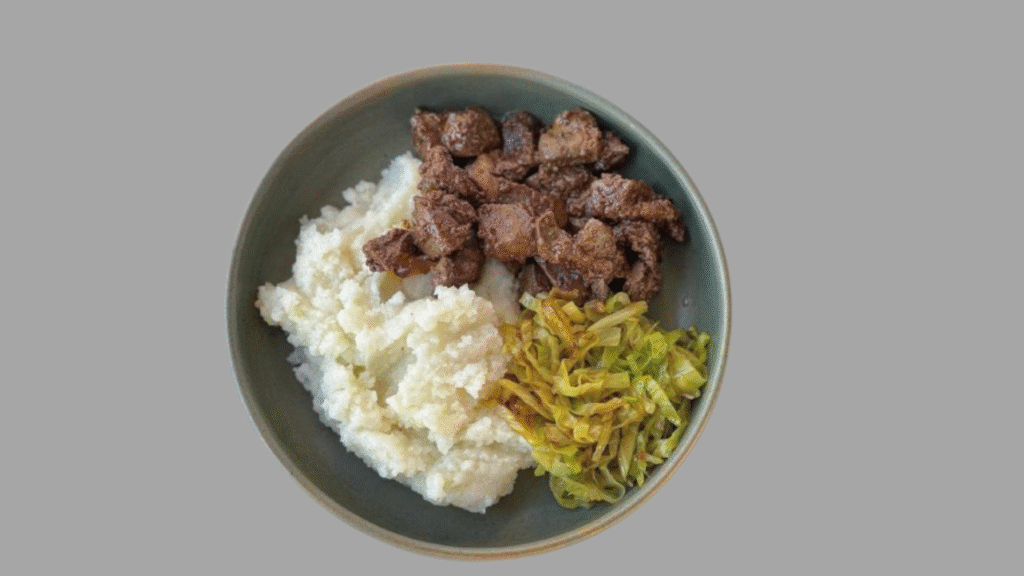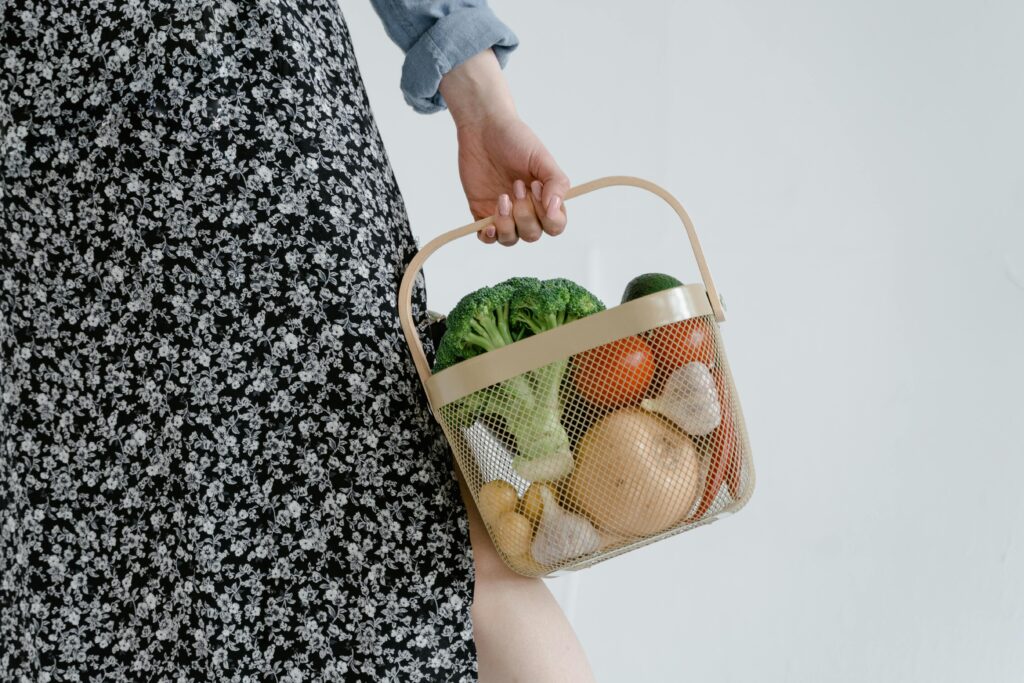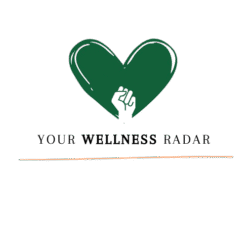What do you mean you don’t like Pap, are you sure you are South African? Pap, or as me and my free state people like to call it, papa, is a very comforting and versatile dish enjoyed across the entire mzansi, from braais to traditional ceremonies, family dinners, and even lunchboxes. Whether it’s stiff pap with meat & chakalaka or crumbly phuthu with stew, this maize-based food is a cornerstone of many diets. But while pap fills the belly and warms the heart, it may not provide all the nutrients that we need for optimal health. In this post, we’ll explore the nutritional profile of pap, its role in South African diets, and the best supplements to complement a pap-based diet for everyone’s wellness.

The Role of Pap in South African Diets
Pap, made from ground maize, is a high-carb, energy-dense food that’s affordable and widely accessible. It’s a go-to for many South African families, especially in busy households or rural communities. However, pap’s nutritional profile has a few limitations:
- High in Carbohydrates: Pap provides quick energy, which is great for active women, but it’s low in protein and healthy fats.
- Low in Micronutrients: Maize lacks key vitamins and minerals like vitamin B12, iron, and omega-3s, nutrients that are especially important for women’s health.
- Filling but Not Nutrient-Dense: Pap’s high volume can make you feel full, I mean really full. I know people who can have one pap meal and go about their entire day with just that and a drink. No snacks, no nothing. And honestly, I assume that’s one of the main reasons it’s so popular in South Africa. Over half the population is very price-sensitive, so an affordable meal that keeps you full for hours? It makes too much sense. But here’s the thing: because you get full quickly, you’re more likely to eat less of the nutrient-rich stuff, like vegetables or lean protein.
It’s easy to assume pap is healthy, especially since our parents and grandparents lived on it for decades. But we have to remember that as much as they ate it, they also worked twice as hard and ate mostly natural, unprocessed food. Their bodies were strong and active. Ours? Not so much. We eat a lot of processed and unhealthy foods, so relying heavily on pap without balancing it out with either food or supplements, can lead to nutritional gaps.
Let’s dive into why supplements matter and which ones actually help.
Nutritional Gaps in a Pap-Based Diet
Here’s a quick look at pap’s nutritional content (per 100g of cooked stiff pap) and where it falls short for women’s health:
| Nutrient | Amount in Pap | Why It Matters for Women |
| Carbohydrates | ~25g | Provides energy but lacks balance without protein or fats. |
| Protein | ~1g | Low protein can affect muscle health and satiety. |
| Iron | ~0.5mg | Insufficient for women, who need 18mg daily to prevent anemia. |
| Vitamin B12 | 0µg | Critical for energy and nerve health; absent in maize. |
| Omega-3 Fatty Acids | 0g | Essential for heart and brain health; not found in pap. |
These gaps can impact energy levels, hormonal balance, and overall wellness, especially for women facing busy lifestyles or specific health needs like pregnancy or menopause.
Top Supplements for South African Women on a Pap-Based Diet

To bridge the nutritional gaps in a pap-heavy diet, supplements can play a key role. Here are my top recommendations, tailored for all my ladies who love their pap:
1. Iron Supplement
Why You Need It: Pap is low in iron, and women are more at risk of iron deficiency due to menstruation, pregnancy, or plant-based diets.
Benefits: Prevents fatigue, supports oxygen transport, and boosts energy, perfect for busy moms and working professionals.
South African Options: Ferrous Forte or Chelated Iron supplements are widely available and affordable.
Tip: Take with vitamin C (like a glass of orange juice) to help your body absorb it better. If you’re pregnant, always consult your doctor first.
2. Omega-3 Fish Oil or Algae-Based Supplement
Why You Need It: Pap doesn’t contain healthy fats like omega-3s, which are vital for heart health, brain function, and reducing inflammation.
Benefits: Supports mental clarity for students and professionals, and promotes healthy skin, a bonus for the beauty conscious.
South African Options: Solgar Omega-3 or Natura Omega are solid picks. Vegans can try Vegan Omega-3 from local health stores.
Tip: Look for high DHA/EPA formulas and store your omega supplements in a cool place to maintain potency.
3.Vitamin B Complex
Why You Need It: While pap does offer some B vitamins, it lacks vitamin B12, crucial for energy and nerve health, especially if you’re vegetarian or eat little meat.
Benefits: Fights fatigue, helps with stress management, and boosts mood.
South African Options: Bio-Strath or Solal Vitamin B Complex are trusted, effective options.
Tip: Take it in the morning for an energy lift that lasts through the day.
4. Magnesium Supplement
Why You Need It: Pap is low in magnesium, which plays a big role in muscle recovery, sleep, and stress relief, especially important for active or stressed women.
Benefits: Eases PMS symptoms, improves sleep quality, and supports muscle health, great if you’re a runner or gym-goer.
South African Options: Slow-Mag or Betterness Magnesium are affordable and easy to find.
Tip: Take it as part of your bedtime routine to relax your muscles and calm your mind.

How to Incorporate Supplements into Your Routine
To make supplements work with your pap-based diet, follow these practical tips:
- Pair with Balanced Meals: Enjoy pap with nutrient-rich sides like spinach, beans, or chicken to reduce your reliance on supplements. I know these options aren’t exactly everyone’s favourite when it comes to taste, so maybe this is your sign to find some recipes that make them pop, I know you don’t play when it comes to the pots!
- Consult a Professional: Chat with a pharmacist at Clicks or Dis-Chem, or a dietitian, to tailor your supplement plan, especially if you’re pregnant or managing a specific health condition.
- Choose Local Brands: South African brands like AnaStellar and Vital are designed with our local needs in mind and are often more budget-friendly than international options.
- Start Small: You don’t have to do it all at once. Begin with one or two basics, like a multivitamin and an omega-3 supplement, so it’s easier to stay consistent without overwhelming your routine.
Conclusion: Empower Your Health with Pap and Supplements
Pap is a proud part of South African culture,but it’s not a complete nutritional solution. By adding targeted supplements like a multivitamin, iron, omega-3s, vitamin B complex, and magnesium, South African women can fill nutritional gaps, boost energy, and support long-term wellness.
Whether you’re a taxi driver in Johannesburg (yes, they read blogs too, lol), a student in Cape Town, or a busy mom in Pretoria, these supplements can help you thrive while still enjoying your favourite pap dishes.
Got questions about supplements or want to share your favourite pap recipe? Drop a comment below or connect with us on Instagram for more health tips tailored to South African women!
